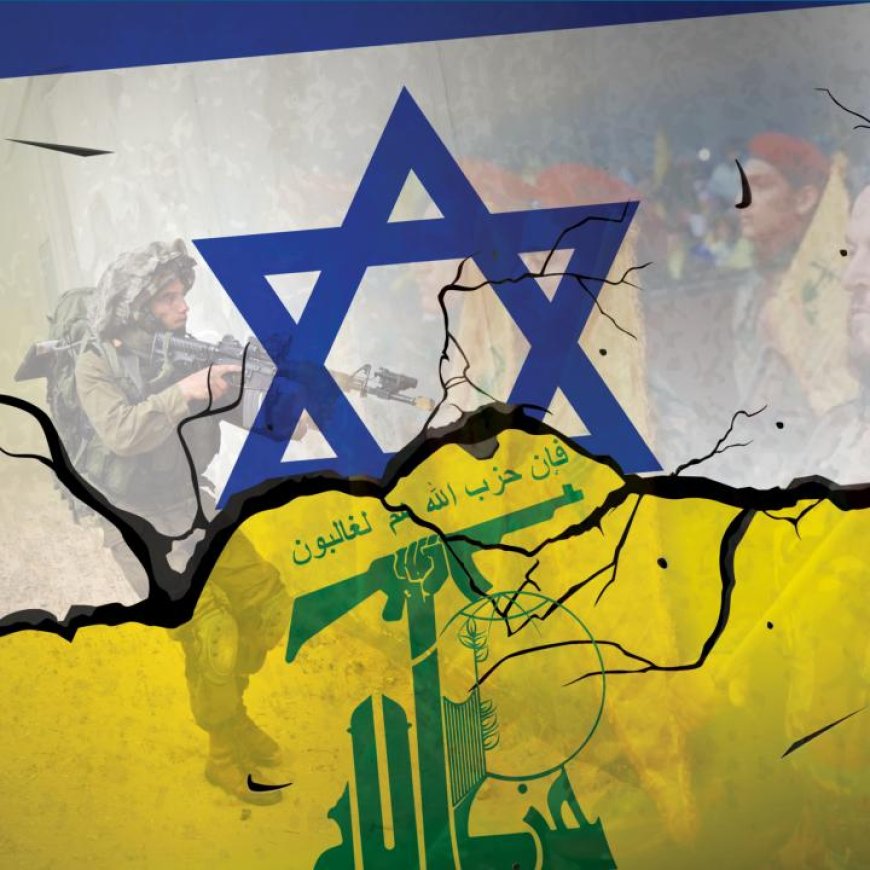Precarious Equilibrium: The Fragile Balance Between Hezbollah and Israel

By: S. Gol‘Anbari
Yesterday morning, Lebanon’s Hezbollah announced a sweeping and formidable offensive against key Israeli targets, describing it as an "initial response" to the assassination of its legendary military commander, Fuad Shukr.
Meanwhile, the Netanyahu administration discussed the possibility of a preemptive strike aimed at retaliating against Hezbollah’s operation. Despite the clashing narratives, one undeniable truth remains: despite the conspicuous surge in tensions, both Hezbollah and the Israeli regime remain adamant in their claims of containing the situation, with neither side displaying an appetite for an escalation into a full-fledged war.
In this context, "war" literally means widespread, cataclysmic conflict. However, what has transpired over the past eleven months is no less than war itself—albeit a war contained within the parameters of calculated, measured, and controlled fire.
Since 1948, Israel, though continuously embroiled in military conflicts, has demonstrated considerable prudence when confronted with the prospect of an all-out war against certain adversaries.
The present situation is no exception. Both Hezbollah and Israel are acutely aware of the catastrophic ramifications of crossing the threshold into a full-scale war—a nightmare scenario for which neither side appears willing to initiate.
Lebanon, fractured internally and vulnerable to widespread devastation, cannot afford for Hezbollah to breach the bounds of the ongoing limited conflict.
Israel, likewise, remains disinclined to repeat the chaos of the previous war with Hezbollah in 2006, where the fallout was both unpredictable and severe. Thus, while Hezbollah has initiated this confrontation as a "support front" for Gaza, the Israeli regime—once quicker to engage in hostilities—now treads more cautiously and seems intent on avoiding a conflict reminiscent of prior wars in Gaza or Lebanon.
Despite the restraint demonstrated by both sides thus far, this fragile equilibrium remains susceptible to sudden shifts. Unexpected events on the ground could rapidly unravel this calculus, forcing both sides toward a war that neither presently seeks.
For now, both Hezbollah and Israel are playing a delicate game, carefully managing the conflict within the bounds of limited warfare while simultaneously seeking to create new military-security realities on the ground.
Israel, in particular, has escalated tensions by orchestrating the assassination of a senior Hezbollah commander in Beirut—an audacious act even within the context of this limited war.
In return, Hezbollah has declared that it struck a strategic target in the Tel Aviv area, but the specifics of this target remain cloaked in ambiguity, with Hezbollah promising to reveal further details in due course. However, Hezbollah's retaliation did not adhere to the established logic of proportionality: "city for city"—Tel Aviv for Beirut.
For the time being, this chapter of limited confrontation between Hezbollah and Israel appears to have reached a tentative conclusion, as the focus now shifts to the ongoing ceasefire negotiations in Cairo. Should these talks falter, the trajectory of future events remains unpredictable.
Will this carefully managed conflict persist within its current controlled framework, or will the intensity and scope of the limited hostilities escalate, eventually pushing both sides toward the unrestrained warfare that, for now, seems a distant but ominous possibility?
While a full-scale war still appears unlikely "at this moment," the situation remains perilously fluid, with the potential for a dramatic escalation looming ever closer on the horizon.













































